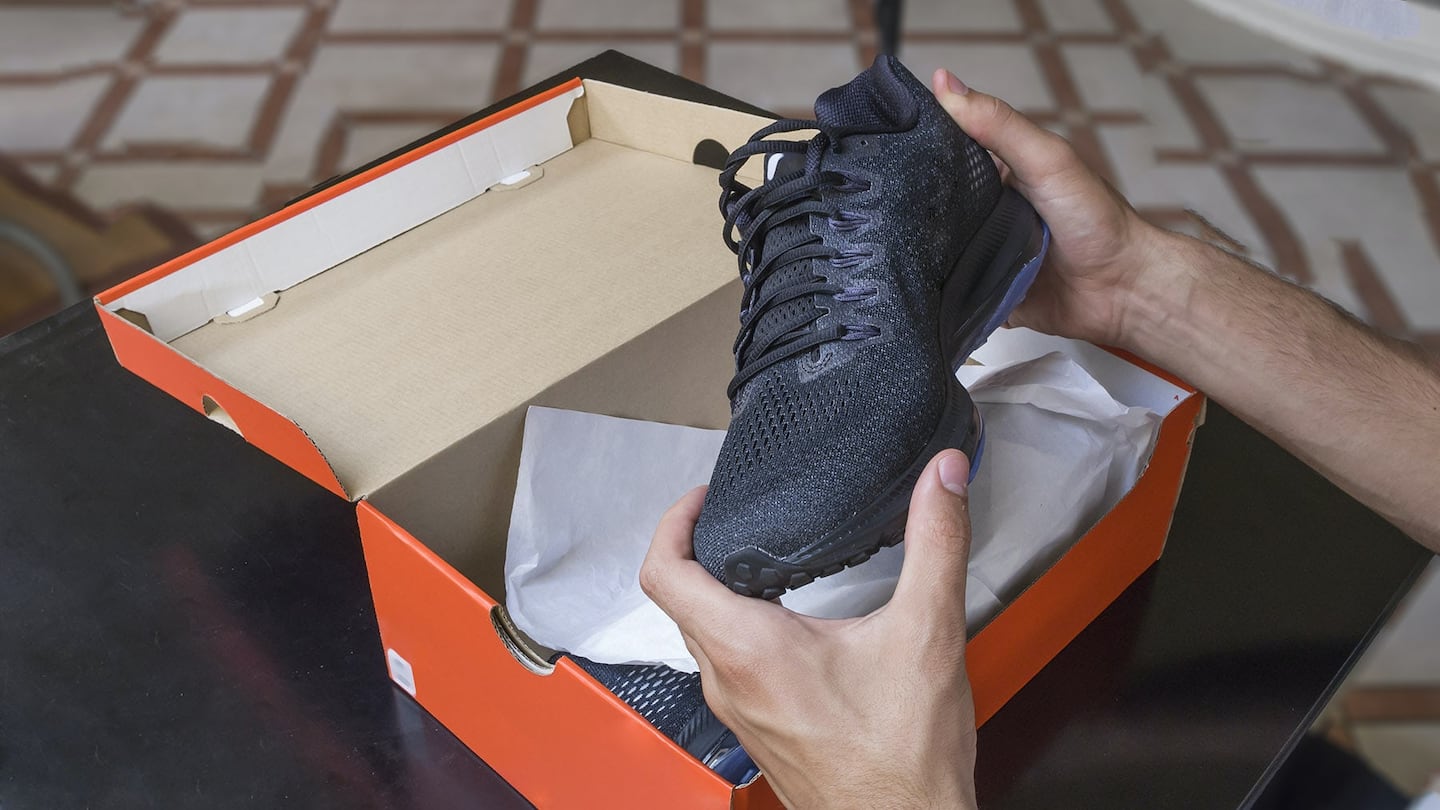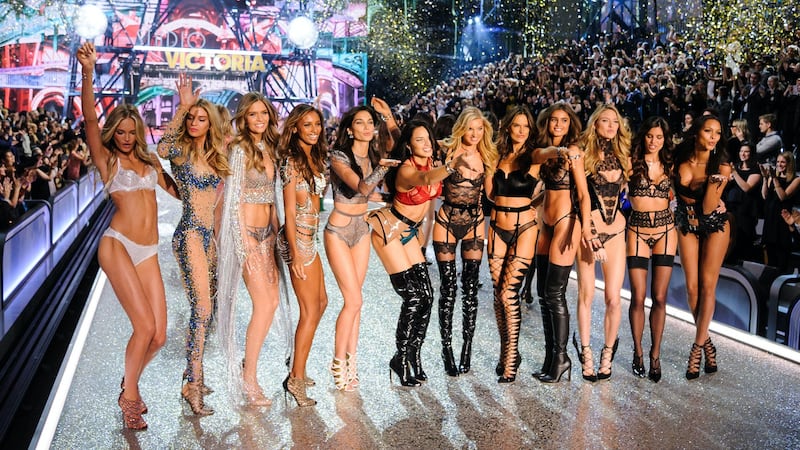
The Business of Fashion
Agenda-setting intelligence, analysis and advice for the global fashion community.

Agenda-setting intelligence, analysis and advice for the global fashion community.

BEIJING, China — World Consumer Rights Day on March 15 has the power to ignite fear among top consumer brands in China. It's the day when state-run broadcaster CGTN (China Global Television Network), formerly known as CCTV, airs its annual consumer rights "315" show, which uses hidden cameras to highlight what it deems as unfair practices against consumers. The CGTN show has previously named and shamed some of the world's biggest companies, including Apple, McDonald's, Starbucks and Volkswagen. No one is safe from scrutiny—certainly not fashion and lifestyle brands.
This year, the show took aim at Nike for allegedly falsely advertising certain shoes. According to the broadcast, the Hyperdunk 2008 FTB trainers sold by the sporting goods giant in China, its second biggest market, did not have 'Zoom Air' sole cushions despite advertising claims that they did. Muji, owned by Ryohin Keikaku Co, was also singled out for allegedly selling dangerous food products in China. According to a report in Fortune, a Ryohin Keikaku spokesman responded by saying the firm was "not selling any food products in China from areas banned from exporting due to concerns about radioactive contamination."
In the case of Nike, the firm swiftly owned up by releasing a statement: "In April 2016, Nike sold 300 pairs of Hyperdunk shoes with an inaccurate product description stating that the shoe contained airbags. As soon as we were made aware, we immediately contacted consumers to offer compensation and apologise for the confusion and inconvenience. Nike is committed to providing consumers with the highest product quality and service and we will fully cooperate with the government regulators regarding their inquiries."
As soon as we were made aware, we immediately contacted consumers to offer compensation and apologise.
The consumer rights TV programme is a reflection of the growing clout of China’s 1.4 billion consumers, and how it can hurt a company’s reputation if singled out for bad corporate behaviour. Apple’s Tim Cook was forced into a rare apology in 2013 after criticism on the show of its post-sales service, while McDonald’s re-trained some of its staff in 2012 after it came under fire for food safety violations. The show also previously targeted Alibaba Group, which has struggled to keep counterfeit products off its websites.
ADVERTISEMENT
The China Consumers Association outlined its theme for 2017 as 'trust in e-commerce,' with plans to improve the quality and standard of consumer goods over the next five years. According to a new guideline approved during the State Council's executive meeting in September 2016, chaired by Chinese premier Li Keqiang, increased efforts will be made to regulate product quality and safety, to meet the increasingly higher standards demanded by Chinese consumers.
China’s reputation as a source for counterfeit and inferior imitation exports hasn’t quelled its increasingly assertive stance against poor quality imports. Market observers suggest that a few campaigns against brands have been used as a pretext for competitors to gain market share. But nevertheless, the broader movement toward consumer protection is both earnest, serious and growing.
Merely days prior to the CGTN broadcast, goods from Esprit and Guess, valued at about $8.12 million, were seized at Shanghai’s Waigaoqiao port for failing a quality check. Chinese authorities cited concerns over colour fastness and unusual levels of pH and formaldehyde in the imported clothing, which exceeded the national standard and could be harmful to human skin. H&M and Puma have also previously been called out for products that do not meet quality and safety requirements.
China's crackdown on international firms is part of a wider campaign against domestic counterfeits (and an incentive to give domestic brands to increase their standards to meet global brands and eventually to export). Jack Ma, chairman of Alibaba and China's richest man, said this month that he wants to enforce serious jail time on copycats — particularly as Alibaba's struggle with counterfeits is part of a large issue in China, where piracy is commonplace and knockoffs of everything from cosmetics to baby milk formula is rampant. The aim is that by 2020, more than 95 percent of consumer goods in major sectors in China will meet international benchmarks.
In Other News...
As China's lingerie market grows, the industry faces competition and consolidation. Boosted by shifts in consumer behaviour as Chinese women shed their conservative stereotype, growing demand for high-end lingerie has been drawing big international brands to China. Victoria's Secret opened a new flagship on Shanghai's Huaihai Road this month amid rumours that the lingerie giant would host its glitzy annual runway show in China at the end of the year.

The Victoria's Secret show in November 2016 | Source: Shutterstock
Other foreign lingerie brands are also vying for a piece of the growing Chinese market: Italian label La Perla has opened 14 stores across mainland China and Hong Kong since it entered the market in 2007, while British high-end brand Agent Provocateur has rolled out seven stores since it opened its doors in 2013.
ADVERTISEMENT
On the other hand, the lower end of the market has been saturated with domestic brands, few of which stand out. The board of directors of Guangdong Cosmo Lady Co, which owns lingerie brands Cosmo Lady and Ordifen, told China Fashion magazine that it expected profits to fall between 50 to 60 percent this year, while local competitors like RomedMaore and Gujin are experimenting with new strategies to increase sales and offset the problem of rising costs and a surplus of products.
Modern Media enters investment agreement with Septwolves. Fujian apparel manufacturer Septwolves has taken a minority stake in Modern Media, whose empire of 13 lifestyle-focused magazines include flagship title Modern Weekly and Hong Kong's popular City Magazine, acquired by the Guangzhou-based magazine publisher in 2003.
The deal, which was finalised on March 10, sees Septwolves acquiring a 30 percent share of Modern Media’s digital media division — said to be the more profitable unit of the business. The investment comes at a time when the company is restructuring its team, having recently appointed Adrian Cheng, the 35-year-old scion of one of Hong Kong’s wealthiest families, as its new executive director and non-executive vice chairman, while Modern Media’s founder Thomas Shao has stepped down from his role as chief executive officer to become chief content officer.
US missile system prompts China action against South Korean products. China has been one of the top consumers of Hallyu, or Korean pop culture, but a policy move by impeached South Korean president Park Geun-hye is changing that. In August 2016, South Korea agreed to host a US Terminal High-Altitude Area Defense (Thaad) anti-missile system to protect itself against North Korea's nuclear threat. Beijing voiced its opposition, viewing the Thaad deployment as a threat to its national security and as another American effort to contain China. Now, signs of retaliation from China have emerged.
This month Chinese authorities, citing alleged safety violations, suspended operations of 55 stores owned by Lotte Group, the South Korean conglomerate that provided land for the anti-missile system. China’s government has also curbed Chinese tourist travel to South Korea; K-pop bands are blocked from airing in China; and imports of 19 Korean cosmetics products have been refused for alleged poor quality control, striking fear among brands like Amorepacific, which are among the top five cosmetic brands in China, according to Euromonitor.
With consumers tightening their belts in China, the battle between global fast fashion brands and local high street giants has intensified.
Investors are bracing for a steep slowdown in luxury sales when luxury companies report their first quarter results, reflecting lacklustre Chinese demand.
The French beauty giant’s two latest deals are part of a wider M&A push by global players to capture a larger slice of the China market, targeting buzzy high-end brands that offer products with distinctive Chinese elements.
Post-Covid spend by US tourists in Europe has surged past 2019 levels. Chinese travellers, by contrast, have largely favoured domestic and regional destinations like Hong Kong, Singapore and Japan.